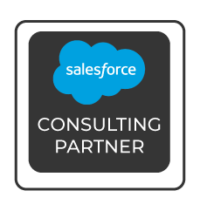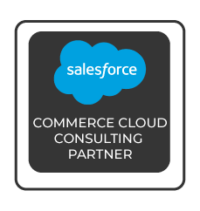Reasons Behind Salesforce Project Failure And How To Avoid Them
Did you know that as many as 70% of CRM projects fail? Yeah, that sounds frightening, especially if you’re new to CRM tool implementation like Salesforce. So,
Do you want to avoid the dreaded Salesforce project failure? We don’t blame you! You wouldn’t want to miss out on a 245% ROI, right? Well, with the right Salesforce implementation strategy, user training, and adoption approach, you can make this dream a reality.
CRM is way more important than just a tool for managing customer data, it can help you develop meaningful relationships with your customers. But… If you don’t implement it properly, it can backfire and make your customers unhappy. And do you know what the Salesforce report says about it?
“91% of customers who are unhappy with a brand will leave without complaining.”
Salesforce is the world’s No. 1 CRM platform. However, even the best tools can fail if not implemented correctly. Many reasons behind Salesforce implementation failure include poor software architecture, lack of maintenance, incomplete integration, and inadequate data.
In this blog, we’ll discuss some of the most common reasons behind Salesforce project failure and give you some suggestions on how to avoid them.
So, let’s get started!
Impact of Failed Salesforce Implementation
Are you implementing Salesforce yourself or outsourcing it to inexperienced partners to save cost? Think twice!!!
No doubt, everyone wants to save costs but it can lead to many challenges and risks. A failed implementation can cause delays, user adoption problems, and budget overruns, which can negatively impact business operations and performance. With the right approach, organizations can avoid these pitfalls and reap the full benefits of Salesforce.

Possible Reasons Behind Salesforce Project Failure
Finding the root cause behind Salesforce implementation failure is necessary, so you have a clear vision of what to avoid. Let’s examine the most common causes of project failure.
Incomplete Cost Assessment
It’s easy for a team or company that’s eager to embrace the latest technology to revolutionize their business operations. They’re pumped up, ready to roll up their sleeves and make their mark in the industry with new CRM or Salesforce add-ons. Well, excitement is a good thing, but what about the cost? That’s where things can get tricky. Sometimes, teams get so focused on the benefits that they overlook the most important step of assessing the financial impact.
If you’re planning a Salesforce solution implementation, cost is a crucial consideration. But it’s not just about budget; unexpected expenses and delays can also impact the success of your project. That’s why developing timelines and processes upfront is important to avoid stress and stay on track.
Underestimate Project Size
As experts who have worked in Salesforce consulting, we can tell you that finding the right balance between ambition and precision is critical. A slight miscalculation in project estimation can have a ripple effect, implementing project outcomes and straining the trust between consulting companies and their clients.
One of the biggest causes of project delays and disputes that we’ve seen is the lack of clearly defined project scopes.
To avoid such situations, it’s important to involve the delivery team early in the sales cycle, craft a complete statement of work (SOW) with well-defined boundaries, and ensure alignment on what’s feasible and what’s not.
Starting without Proper Strategy, Goal, & Roadmap
It’s important to zoom out and grasp the bigger picture of any project. Defining success metrics is important to ensure that every team member is on the same page.
For example, reducing call resolution time for a call center project or closing deals faster for a sales team.
Choose the Wrong Salesforce Implementation Partner
If you’re planning to purchase or upgrade your Salesforce platform, it’s important to work with experts to achieve your desired results. However, finding the right Salesforce implementation partner can be challenging, and choosing the wrong one could lead to major pitfalls. Outsourcing to a consultancy or systems integrator can help, but don’t overlook important details or fall for generic sales pitches. Communication and expectation management are key, so choose your partner wisely and prepare for a successful Salesforce implementation!
Have you ever had to work with implementation partners who sent consultants who were not up to par? This is a common issue that can be frustrating and detrimental to the success of your Salesforce initiative. You need consultants who are not only highly skilled but also have deep knowledge of Salesforce implementations. After all, they are core contributors to the success of your implementation.
Doing Too Much at Once
While implementing Salesforce, it’s quite common to see a jumble of vendors and technical experts working together in a single organization. However, with this complexity comes the risk of bottleneck and confusion, which can lead to losing valuable team members.
Strategic planning and clear communication can develop collaboration and cooperation within a team. With the right approach, each team can complement one another.
Over Complicate Requirements
Salesforce project implementation is exciting, but don’t forget that Salesforce works within certain parameters. If you plan to do extensive customizations or complicated requests, be prepared for potential complications during implementation and user adoption.
One major challenge during implementations is necessary customizations that generate bugs and inconsistencies. Communicate the amended costs and bring in specialist Salesforce freelancers if needed; otherwise, users may struggle to use the system as intended. Migrating customizations from an existing CRM can lead to limited functionalities or delays, so plan accordingly. But worry not; even if complicated requirements and customizations are necessary, it doesn’t mean the implementation will be a disaster.
Not Involving End Users
Did you know that most digital transformations fail to generate positive revenue? It’s true! And 70% of the time, this is due to a lack of user adoption.
But don’t worry! The key to success is to make your end users’ lives easier. How, you ask? By involving them throughout the process! Start by letting them know what’s coming and why. Get their buy-in and ask for their input on what would make a great CRM system. Address their pain points and show them how valuable the tool will be by building it around their needs. Get them excited about the change and give them a sense of ownership, and your Salesforce implementation will be seamless.
Lack of Proper Training
If you want to get the most out of Salesforce project implementation, you need proper training. Without proper training, the system can be overwhelming, which can cause low user adoption and decreased efficiency. Poor data quality and inaccurate reporting can result from users who are not trained to enter and manage data effectively.
Failure to Adopt After Implementation
When you get started with the Salesforce implementation process, always keep in mind that change can be challenging but also good for growth. Your data is the most important part of your business; it’s important to involve everyone in the integration process to ensure its success.
How To Avoid Salesforce Project Failure
You don’t want to waste your resources and time on a poorly executed implementation. To help you out, we’ve compiled some practical tips and strategies to avoid common implementation pitfalls. Let’s have a look at them:
- Involve your department heads and end-users in the implementation planning process. Salesforce offers a high level of customization, so you can tailor the platform to meet your business’s unique requirements.
- Prioritize data quality from the outset of the implementation project to ensure that your data is accurate, complete, and consistent.
- Keep track of user adoption regularly with the help of Salesforce implementation partners.
- Salesforce regularly releases new updates and features, so stay up-to-date with these releases.
- Establish a governance framework to ensure that the system is used consistently and effectively.
Conclusion
So, now you know everything you need to avoid while implementing the Salesforce project. Also, you know the most important part: hiring a reliable and experienced Salesforce implementation partner who understands what to look out for and what not.
Innovadel Technologies, with over a decade of experience in Salesforce implementation, can help you. We’re a certified Salesforce consulting partner offering Salesforce implementation, integration, migration, development, and support.
Contact us for a detailed discussion!
FAQs
Why do 70% of projects fail?
According to the research, the primary cause of project failure is the absence of well-defined objectives, which accounts for 37% of all project failures. This is closely followed by insufficient stakeholder engagement, contributing to 25% of failed projects. On the other hand, ineffective risk management and poor communication are significant factors that account for 23% and 21% of project failures, respectively.
How to successfully implement Salesforce?
- Define stakeholders
- Define your goals
- Collect & prioritize requirements
- Build
- Testing & implementation of feedback
- Go-live
What is implementation failure?
During development, an implementation project may fail or end early, resulting in financial and organizational losses.
What do you get with Salesforce implementation services?
Salesforce implementation typically includes everything from consulting to planning, configuration, testing, and training. Here’s why you need to hire Innovadel for Salesforce implementation services:
- Business needs assessment for the perfect Salesforce solution
- Plan, design, and implement Salesforce like a pro
- Customized Salesforce instance for your specific needs
- Seamless data migration with Quality assurance
- Salesforce training & support for your team’s success.
Related Posts
If you enjoyed reading this then please explore our other Articles below








